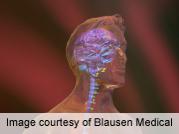
TUESDAY, Nov. 20 (HealthDay News) — The ongoing meningitis outbreak tied to tainted steroid injections has reached 490 cases, and another person has died, bringing the total fatalities to 34, the U.S. Centers for Disease Control and Prevention reported Monday.
The contaminated injections have been traced to a specialty pharmacy in Massachusetts, the New England Compounding Center, which ceased operations after the start of the outbreak early last month.
Compounding pharmacies combine, mix or alter ingredients to create drugs to meet the specific needs of individual patients. Such custom-made drugs may include a smaller dose, for example, or the removal of an ingredient that might trigger an allergy in a patient, according to the U.S. Food and Drug Administration.
These specialty pharmacies aren’t subject to the same FDA oversight as regular drug manufacturers. Some members of Congress are calling for greater FDA regulation of these businesses.
The owner of the New England Compounding Center refused last Wednesday to testify before a House of Representatives committee investigating the steroid/meningitis outbreak.
After a series of questions from members of the House Energy and Commerce Committee, Barry Cadden, co-founder of the New England Compounding Center, said: “Under advice of counsel, I respectfully decline to answer under basis of my constitutional rights and privileges, including the Fifth Amendment,” the Associated Press reported.
Meningitis is inflammation of the membranes that surround the brain and spinal cord. The steroid injections were used on patients complaining of back or joint pain.
Last month, FDA investigators who toured the New England Compounding Center’s Framingham plant found foreign, “greenish-black” material in some vials of the injectable steroid suspected as the cause of the illnesses, federal health officials said. The contaminated product was one of a host of potential violations discovered during the recent inspection, the officials said.
The U.S. Centers for Disease Control and Prevention on Tuesday had the following state-by-state breakdown of cases: Florida: 24 cases, including 3 deaths; Georgia, 1 case; Idaho, 1 case; Illinois, 2 cases; Indiana: 55 cases, including 5 deaths; Maryland: 23 cases, including 1 death; Michigan: 164 cases, including 9 deaths; Minnesota: 13 cases; New Hampshire: 13 cases; New Jersey: 33 cases; New York: 1 case; North Carolina: 3 cases, including 1 death; Ohio: 18 cases; Pennsylvania: 1 case; Rhode Island: 3 cases; South Carolina: 1 case; Tennessee: 82 cases, including 13 deaths; Texas: 2 cases; Virginia: 50 cases, including 2 deaths.
Twelve of the 490 cases involve what the CDC calls “peripheral joint infection,” meaning an infection in a knee, hip, shoulder or elbow. These joint infections aren’t considered as dangerous as injections near the spine for back pain that have been linked to the potentially fatal meningitis infections.
The CDC and state health departments estimate that roughly 14,000 patients may have gotten steroid injections from the New England Compounding Center. All of the fungal meningitis patients identified so far were thought to be injected with the steroid methylprednisolone acetate, according to the CDC.
People who have had a steroid injection since July, and have any of the following symptoms, should talk to their doctor as soon as possible: worsening headache, fever, sensitivity to light, stiff neck, new weakness or numbness in any part of your body or slurred speech, the CDC said.
More information
The U.S. National Library of Medicine has more about injections for back pain.

